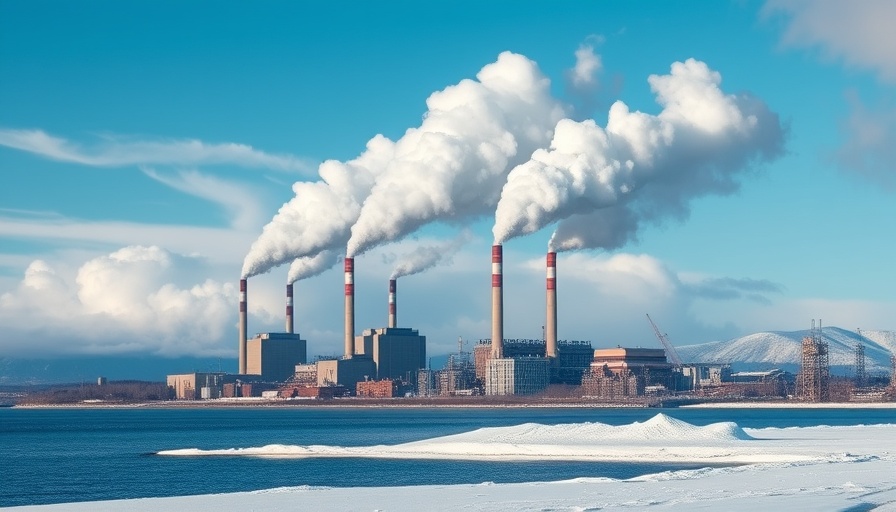
Understanding the $28 Trillion Climate Damage
A recently published study by researchers at Dartmouth College has unveiled a staggering $28 trillion in climate-related economic damage attributed to just 111 of the world's largest corporations. This alarming figure is not merely a number; it represents potential accountability for the companies whose operations have been linked directly to rising global temperatures and the resulting economic fallout.
The Major Players in Climate Damage
The analysis highlights that over half of the total damage came from only ten fossil fuel giants, including Chevron, BP, Shell, and ExxonMobil. Surprisingly, the top two offenders—Gazprom and Saudi Aramco—alone contributed over $2 trillion each to the global heating crisis. This stark data challenges us to consider the accountability of these companies, urging us to think about how corporate practices affect our environment.
The Science Behind the Figures
The researchers utilized advanced empirical climate economics methodologies to quantify the specific contributions of these corporations to global temperature changes, utilizing detailed emissions data spanning 137 years. Their findings indicate that the financial implications of greenhouse gas emissions are far-reaching, with every percentage point of emissions since 1990 correlating with $502 billion in economic damage alone from heat. It's essential to recognize that these damages exclude other severe weather phenomena, compounding the potential costs of inaction.
Legal Implications and Accountability
As climate lawsuits surge, currently estimated at 68 globally—with more than half filed in the U.S.—this study could provide a critical foundation for legal arguments asserting accountability for climate change. As Justin Mankin, one of the study's authors, states, “Everybody’s asking the same question: What can we actually claim about who has caused this?” This inquiry is fundamental as society seeks to hold polluters liable through emerging 'polluter pays' laws.
A Call to Action for Consumers
As eco-conscious professionals, parents, and wellness enthusiasts, we must consider how our choices influence corporate practices. We can play a role in this accountability narrative by supporting sustainable brands and advocating for transparency in corporate environmental practices. This decision will not only reflect our values of health and sustainability but could also contribute to pressure on corporations to adopt cleaner practices.
Looking Forward: Opportunities for Change
The implications of this study extend beyond just naming and shaming corporations. It sets the stage for a broader dialogue about the collective responsibility we all share in addressing climate change. As individuals, we must prioritize eco-friendly choices, engage with our communities about sustainability topics, and lobby for policy changes that hold corporations accountable for their environmental impact.
By recognizing the substantial economic damage represented by these findings, we are invited to reflect on our personal agency in the fight against climate change. Let’s embark on this journey together—adopting more sustainable habits and pushing for necessary, impactful changes in our communities.
 Add Row
Add Row  Add
Add 




 Add Row
Add Row  Add
Add 

Write A Comment